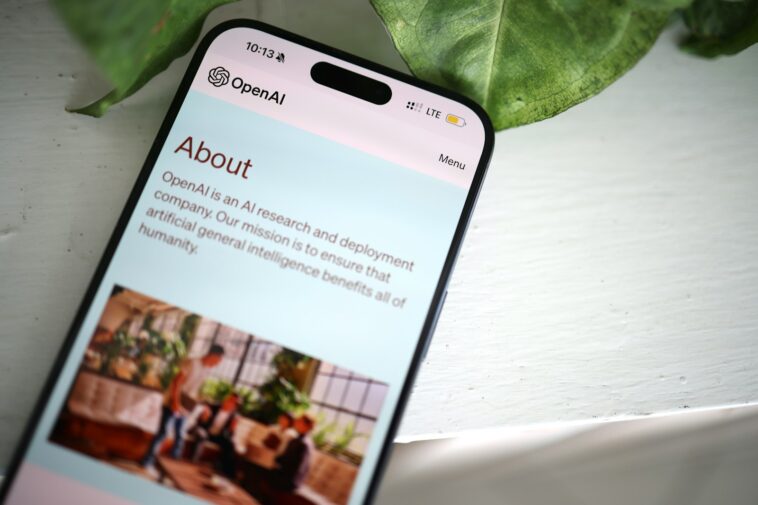Search is changing—and fast. With generative AI popping up everywhere, from search engines to content tools, traditional SEO isn’t enough anymore.
If you’ve noticed your traffic dropping or staying flat, even though you’re publishing good stuff, there’s a reason: generative AI is reshaping how content gets found, ranked, and shown to users.
I’ve been working with SEO for a while, and honestly, this shift is one of the biggest I’ve seen in years.
So if you’re trying to figure out how to make your content stand out—not just to Google’s algorithm but also to tools like ChatGPT, Gemini, or Microsoft Copilot—you’re in the right place.
Let’s break down exactly what’s going on and what you can do about it.
Why SEO Needs a New Strategy for Generative AI
Search engines don’t just give a list of blue links anymore. Google is now showing AI-generated answers right on the page.
These AI summaries pull from content across the web and often answer user questions without them needing to click.
This means:
Your website could be used as a source, but not get any clicks.
If your content isn’t structured right, AI might skip it altogether.
Your old SEO tactics—like keyword stuffing or writing 2,000-word blog posts just to rank—won’t cut it anymore.
And with AI models getting better every month, things will only keep shifting. That’s why optimizing for generative AI is less about playing tricks and more about clarity, authority, and context.
What Does SEO Look Like in a Generative AI World?
Here’s what’s different now—and what you can do to keep up:
1. Content Has to Be Clear and Useful—Fast
AI models don’t read like humans do. They scan for meaning, structure, and facts. If your content takes too long to get to the point, it won’t be used.
What to do:
Start with direct answers at the top (just like a featured snippet).
Use plain, simple language. No filler. No fluff.
Break things into sections with clear subheadings (H2s and H3s).
Example: Instead of a long intro, just answer the user’s question first. Then add extra detail if needed.
2. Build Trust and Authority
AI tools are trained to favor sites that look trustworthy. That includes things like author bios, clear sources, and backlinks from reliable sites.
What to do:
Add your name and expertise to your content. Real authors matter.
Link to solid sources (like Google Search Central or Statista).
Try to get links from sites in your niche. Even 2–3 quality backlinks can help.
3. Use Structured Data (Schema Markup)
Structured data helps AI (and search engines) understand what your page is about. It also makes you eligible for rich results like FAQ boxes or AI snapshots.
What to do:
Add FAQ schema if your post answers common questions.
Use Article schema for blog posts.
Use Person schema for your author bio.
You don’t need to code this yourself—tools like Rank Math or Yoast SEO make it easy.
4. Think About How AI Models “Read” Your Site
Generative AI tools crawl and index content differently from traditional search engines. They don’t just look at your home page or keyword density—they scan semantic meaning, context, and content freshness.
What to do:
Update content regularly. AI loves fresh, relevant data.
Add internal links that explain related concepts.
Group content by topic clusters—not just keywords.
For example, if your site is about digital marketing, have a whole section on AI content tools, another on SEO, and link between them. It shows depth.
5. Write for Real People, Not Robots
This one sounds obvious, but it’s more important than ever. Generative AI tools learn from good writing—and good writing means helpful, friendly, natural content.
What to do:
Avoid overusing keywords.
Use a tone that’s casual but confident.
Don’t write like you’re trying to game the system. Write like you’re helping someone solve a problem.
You’re not just trying to rank anymore—you’re trying to be the source that AI uses in its answers.
What’s Working Right Now (With Examples)
Here are a few strategies that are showing strong results in 2025:
Short, direct answers at the top of the page
Like this:
Q: How do you optimize SEO for generative AI?
A: Focus on clear answers, structured content, and real expertise. Use schema markup and update often.
Lists and bullet points
They’re easier for AI to understand—and they improve readability.
Adding FAQs
Not only do FAQs show up in rich results, but they also help AI understand your page better.
Linking to credible stats
Example: Instead of saying “AI is growing fast,” say:
Generative AI traffic has increased by over 1,300% since 2022 (Similarweb, 2024).
FAQs
Is traditional keyword research still useful?
Yes—but use it to guide your topics, not stuff your content. Focus more on search intent and questions people are asking.
Should I optimize for AI tools like ChatGPT?
You don’t “optimize” for ChatGPT the way you do for Google. But by being clear, helpful, and up-to-date, you make your content more likely to be referenced by AI tools.
How do I know if my content is being used in AI summaries?
There’s no perfect tool yet, but tools like SparkToro or AlsoAsked can give hints. Check Google Search Console for changes in impressions, not just clicks.
Does AI content rank well?
Only if it’s helpful. Google now cares more about experience (see E-E-A-T)—so adding your own point of view is key, even if AI helps you write.
A Quick Checklist to Optimize for Generative AI
Start with a direct answer at the top
Use clear subheadings (H2s and H3s)
Add internal links and topic clusters
Include structured data (like FAQ or Article schema)
Write naturally, using simple words
Link to trustworthy sources
Keep content fresh and updated
Show real expertise (add your name and background)
Answer questions people ask (check forums, Google “People Also Ask,” etc.)
Final Thoughts
This isn’t about chasing algorithms anymore. It’s about becoming useful—to readers and to the AI models that help them find answers.
If your content makes someone’s life easier, it’ll show up more often, whether in a search result, an AI summary, or a chatbot’s answer.
It might take some adjusting. But once you start writing and structuring content for humans and AI alike, the benefits compound—more visibility, better engagement, and stronger authority in your space.
So, how are you changing your SEO strategy to stay visible in the age of generative AI?





GIPHY App Key not set. Please check settings